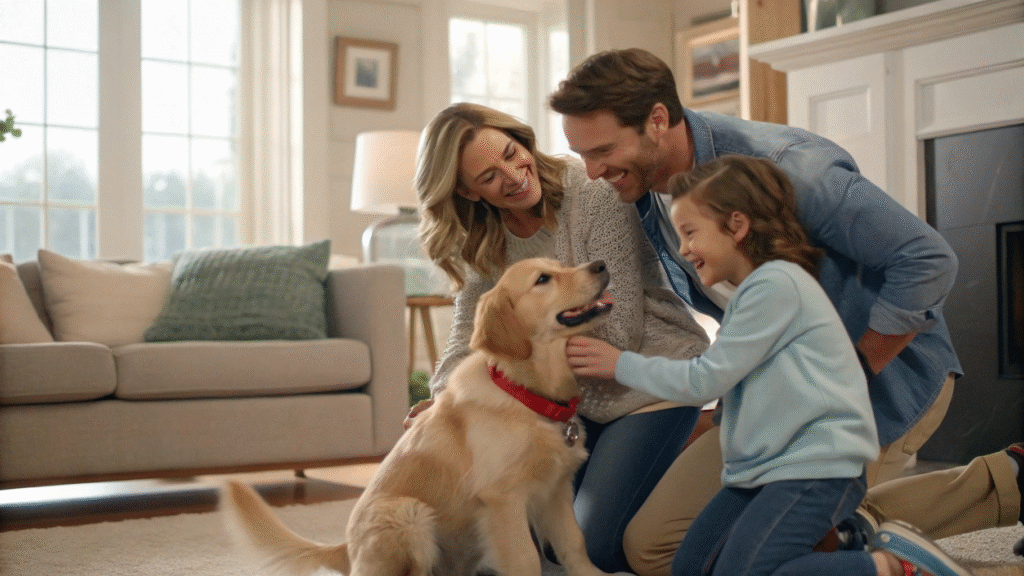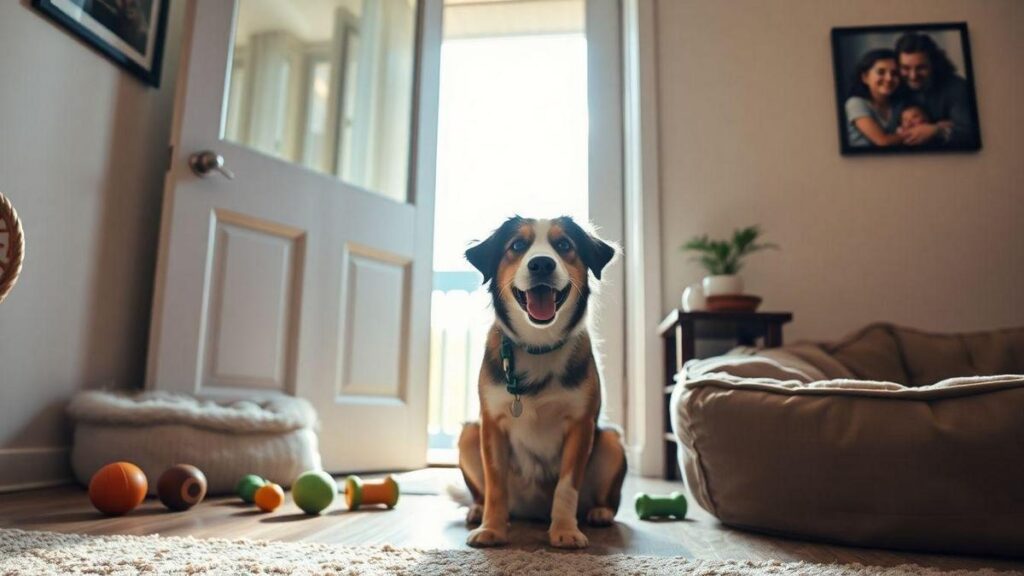Senior Dogs: Why Adopt Older Dogs is Amazing and Truly Rewarding
Puppy breath is undeniably cute, and those clumsy, oversized paws stumbling around are enough to melt anyone’s heart.
Puppies get a lot of attention, and for good reason! But have you ever stopped to consider the quiet wisdom in the eyes of a senior dog waiting patiently in a shelter? Have you experienced the profound, almost instant gratitude of an older dog settling onto a soft bed in their real forever home? The truth is, adopting older pets, especially senior dogs, often gets overlooked, but it offers a unique set of joys and deeply fulfilling rewards that puppyhood just can’t match. Let’s explore why opening your heart and home to a senior dog is truly one of the most amazing things you can do.
Choosing to focus on adopting older pets means looking beyond the initial burst of puppy energy and seeing the incredible potential for companionship, love, and mutual appreciation that lies within a dog who has already lived a little life. These dogs often end up in shelters through no fault of their own – perhaps due to an owner’s passing, a change in family circumstances, or financial hardship. They have so much love left to give and desperately need a second chance at happiness. By choosing a senior, you’re not just gaining a pet; you’re often saving a life that others have passed by, and the bond formed from that act of compassion is incredibly powerful.
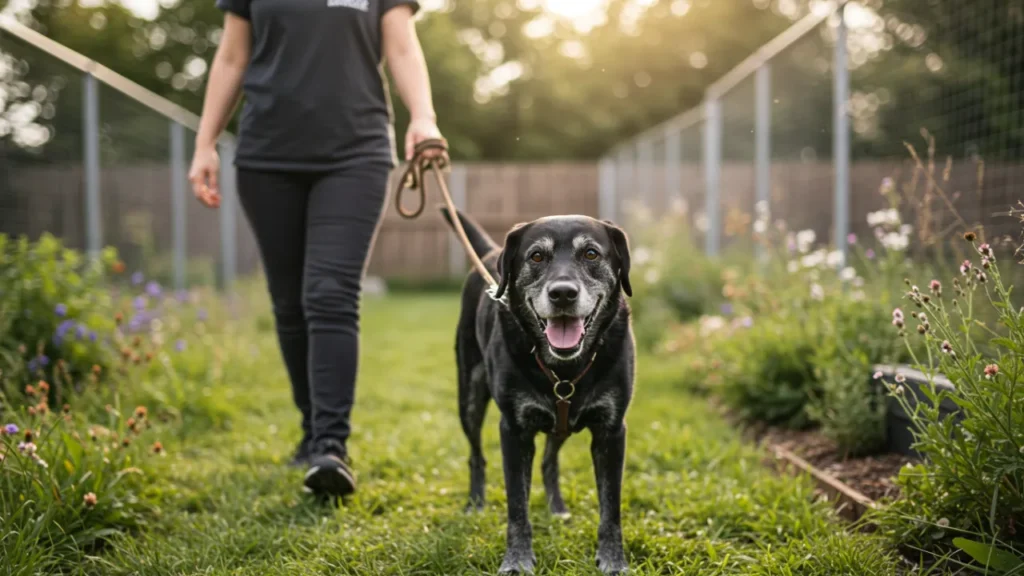
Summary
Busting Myths About Adopting Older Pets
Unfortunately, several misconceptions often deter people from considering senior dogs. It’s time to set the record straight and debunk these common myths that prevent wonderful older pets from finding the loving homes they deserve.
Myth: Older Dogs Can’t Bond or Learn New Tricks
This is perhaps one of the most pervasive and untrue myths. Dogs are capable of forming deep, loving bonds at any age. In fact, many senior dogs, having experienced loss or uncertainty, bond very quickly and intensely with their new families, showing immense gratitude and affection. They absolutely can learn new things! While they might not have the boundless energy of a puppy, their ability to focus can actually make them easier to train in some ways. Using positive reinforcement methods, you can teach senior dogs new commands, routines, and fun tricks. Their desire to please and connect remains strong throughout their lives.
Myth: Senior Dogs Come with Too Many Health Problems
While it’s true that older dogs are more prone to certain age-related conditions like arthritis or decreased vision/hearing, not every senior dog has major health issues. Many are perfectly healthy or have minor, manageable conditions. Furthermore, shelters and rescue groups often provide thorough veterinary check-ups and are transparent about any known health concerns. Adopting a senior often means you have a clearer picture of their long-term health outlook compared to a puppy whose genetic predispositions might not be apparent yet. Plus, many common senior issues are easily managed with affordable medication, supplements, or minor lifestyle adjustments.
Myth: You Won’t Have Much Time with Them
This can be a difficult thought, but it shouldn’t deter adoption. Firstly,
“senior” doesn’t necessarily mean “end of life.” Many senior dogs available for adoption are only 7 or 8 years old and still have many happy, healthy years ahead of them. Secondly, even if your time together is shorter than it might be with a puppy, the quality of that time and the impact you make on that dog’s life are immeasurable. Providing a loving home for a dog’s golden years is an incredibly compassionate act, and the bond you form can be just as deep, if not deeper, knowing you gave them comfort and happiness when they needed it most.
The Undeniable Perks of Welcoming a Senior Dog
Beyond busting myths, there are numerous positive advantages to choosing an older companion. Adopting a senior dog often means skipping many of the challenges associated with puppyhood and welcoming a more settled, established personality into your home.
What You See is What You Get (Established Personality and Size)
With a senior dog, their personality is already fully developed. Are they calm and cuddly? Playful and energetic? Independent or a total Velcro dog? You’ll have a much clearer idea of their true temperament compared to a puppy whose personality is still forming. Their size is also set, so there are no surprises about how big they’ll eventually get. This predictability makes it easier to choose a dog whose energy level and personality truly match your lifestyle.
Often Already House-Trained and Know Basic Commands
One of the biggest perks! Many senior dogs have lived in homes before and are already house-trained, saving you the time, effort, and potential frustration of potty training a puppy. They may also already know basic commands like “sit,” “stay,” or “come.” While some may need a refresher course or have quirks from their past, you’re often starting with a foundation of basic manners, which is a huge advantage.
Lower Energy Levels: Perfect for Calmer Households
While some seniors remain quite active, most older dogs have lower energy requirements than puppies or young adults. They still need regular exercise, like daily walks, but they’re often content with shorter outings and more relaxed activities. This makes them ideal companions for individuals or families with less active lifestyles, people living in apartments, or those who simply prefer a calmer canine presence. They’re often masters of napping and cuddling!
Skipping the Destructive Puppy Phase
Ah, puppyhood – the land of sharp teeth, endless chewing, and occasional household destruction. Senior dogs are typically long past the phase of chewing furniture legs, nipping fingers, or having constant potty accidents (assuming they are house-trained). They’ve usually outgrown these challenging behaviors, meaning your shoes and sofa are generally much safer!
The Deep Gratitude and Instant Bond
There’s something truly special about the bond formed with an adopted senior dog. Many adopters report an almost immediate sense of gratitude and deep affection from their older pets. It’s as if these dogs know they’ve been given a second chance, and they repay that kindness with unwavering loyalty and love. They often settle into their new homes quickly and seamlessly become cherished members of the family.
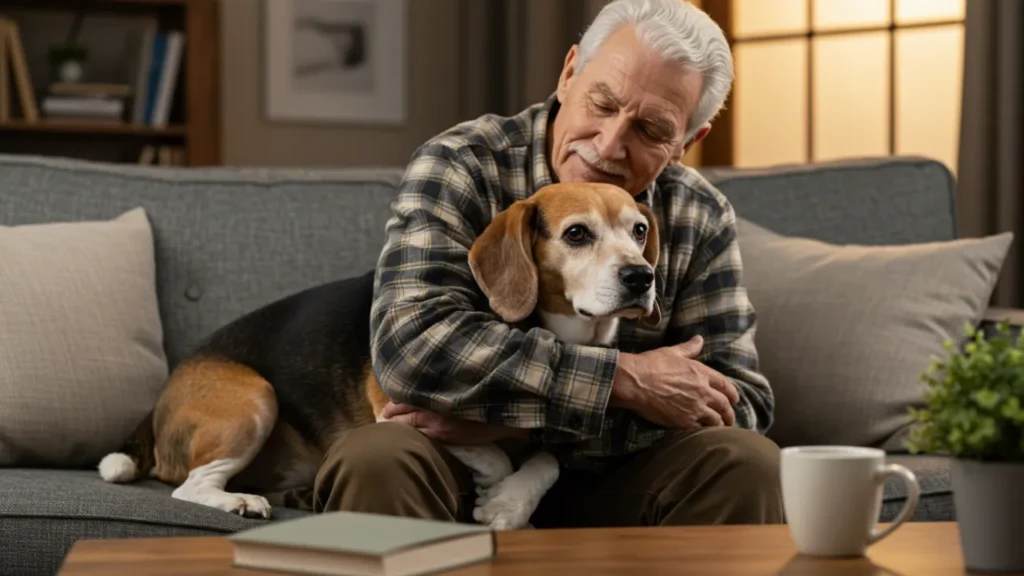
Finding Your Perfect Senior Companion
Ready to open your heart to an older dog? Finding the right match involves connecting with local shelters and rescue organizations that specialize in or frequently house senior pets.
Working with Local Shelters and Senior Dog Rescues
Many animal shelters have dedicated sections or programs for senior pets. Additionally, numerous breed-specific and all-breed rescue groups focus specifically on rescuing and rehoming older dogs. These organizations are invaluable resources. Their staff and volunteers often know the dogs’ personalities and histories well and can help match you with a senior whose needs and temperament fit your home. Look for “Senior Dog Rescue” groups in your area or ask your local shelter about their older residents.
Understanding the Needs of Different Senior Dogs
“Senior” is a broad category. A 7-year-old Lab might still be quite active, while a 12-year-old small breed might be slowing down considerably. Consider the dog’s specific age, breed, size, known health conditions, and energy level. Be honest about what you can provide in terms of exercise, potential medical care, and home environment. Some seniors might have special needs (like vision or hearing impairment, mobility issues, or require daily medication) that require a bit more commitment.
Considering Fostering First
If you’re unsure about committing to adoption right away, consider fostering a senior dog. Fostering provides a temporary home for a dog while the rescue organization searches for a permanent adopter. It’s a wonderful way to experience life with a senior pet, help a dog in need, and see if adopting an older dog is the right fit for you long-term. Many foster situations turn into “foster fails” – where the foster parent falls in love and adopts the dog themselves!
Preparing Your Home for an Older Adopted Dog
While senior dogs often require less intensive preparation than puppies, making a few adjustments can help ensure their comfort and safety as they settle into their new surroundings.
Creating a Comfortable and Accessible Environment (Ramps, Orthopedic Beds)
Think about accessibility. If you have stairs, consider if the dog can manage them easily or if baby gates might be needed initially to prevent falls. Provide a comfortable, supportive orthopedic dog bed (like the Big Barker or PetFusion mentioned in our dog bed article!) placed in a quiet, draft-free area. Non-slip rugs on hardwood or tile floors can help dogs with mobility issues maintain their footing. Ramps can be helpful for getting into cars or onto furniture if allowed.
Scheduling a Senior Wellness Vet Check
Just as with any adopted dog, schedule a thorough check-up with your veterinarian soon after bringing your senior home. Discuss their known history, perform baseline bloodwork if recommended, update any necessary vaccinations, and establish a plan for ongoing care. This is crucial for managing any existing conditions and monitoring for new age-related issues. Your vet can provide guidance on diet, exercise, and supplements appropriate for their age and health status.
Adjusting Diet and Exercise for Senior Needs
Senior dogs often have different nutritional requirements than younger adults. They may benefit from a high-quality senior-specific dog food that might be lower in calories (to prevent weight gain) but rich in nutrients that support joint health (like glucosamine and chondroitin) and overall well-being. Discuss dietary options with your vet. Exercise needs also change; while regular walks are still important for mobility and mental stimulation, the intensity or duration might need adjustment based on their stamina and any physical limitations.
The Heartfelt Reward: Saving a Life
Ultimately, the most profound benefit of adopting older pets is the knowledge that you are making a tangible difference in the life of a deserving animal. You are providing comfort, security, and love during their golden years.
Giving a Deserving Dog a Second Chance
Senior dogs are often the most overlooked population in shelters, facing higher euthanasia rates simply due to their age. By choosing to adopt a senior, you are quite literally giving them a second chance at life and happiness. You’re showing them that they are still valuable, loved, and worthy of a warm bed and a gentle hand.
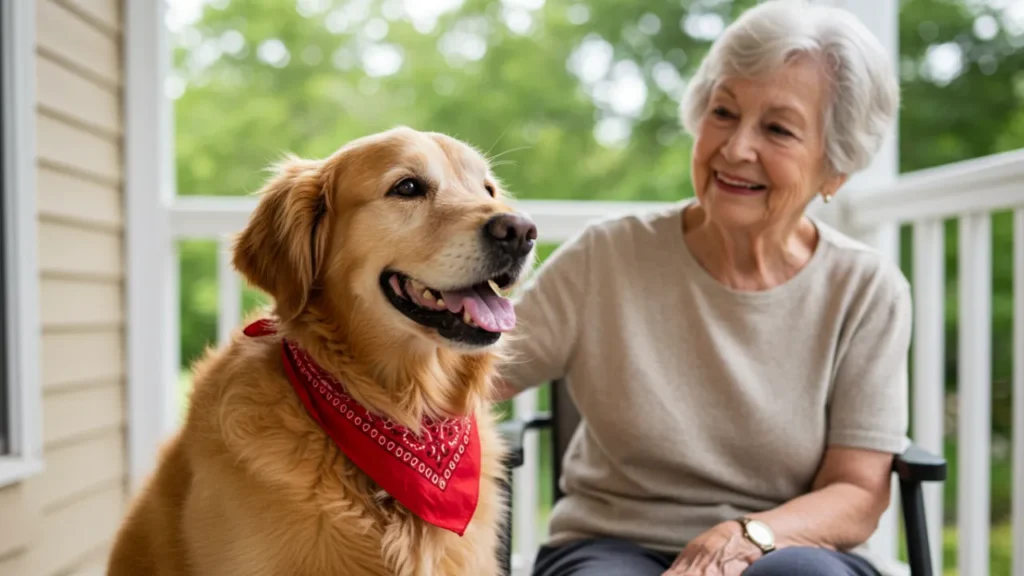
The Unconditional Love of a Senior Pet
The love and companionship offered by a senior dog are pure and unconditional. They may not demand constant attention like a puppy, but their quiet presence, gentle nudges, and soulful eyes convey a depth of affection that is incredibly moving. They remind us to appreciate the simple joys – a comfortable nap, a leisurely walk, a shared quiet moment. The bond you form with an adopted senior dog is a unique and precious gift.
Adopting older pets isn’t just an act of kindness; it’s an opportunity to experience a different, often calmer, and deeply rewarding kind of canine companionship. Senior dogs have so much love left to give, and opening your home to one is an amazing way to enrich your life while saving theirs.
Key Takeaways:
- Don’t believe the myths: Senior dogs bond deeply, can learn new things, and adopting them is incredibly rewarding.
- Benefits include knowing their established personality/size, often being house-trained, having lower energy levels, and skipping the destructive puppy phase.
- Work with local shelters and senior-specific rescues to find your perfect match.
- Prepare your home with comfortable bedding (orthopedic beds are great!), ensure accessibility, and schedule a vet check promptly.
- Adjust diet and exercise to meet their senior needs, as advised by your vet.
- Adopting a senior dog saves a life and offers a unique, profound bond built on gratitude and unconditional love.
- The quality of time spent with a senior dog is immeasurable, regardless of the quantity.
**Sidnir Vieira**
Founder of TechHavela
A passionate pet and tech content creator, helping dog owners across the U.S. make smarter decisions for their furry friends.

